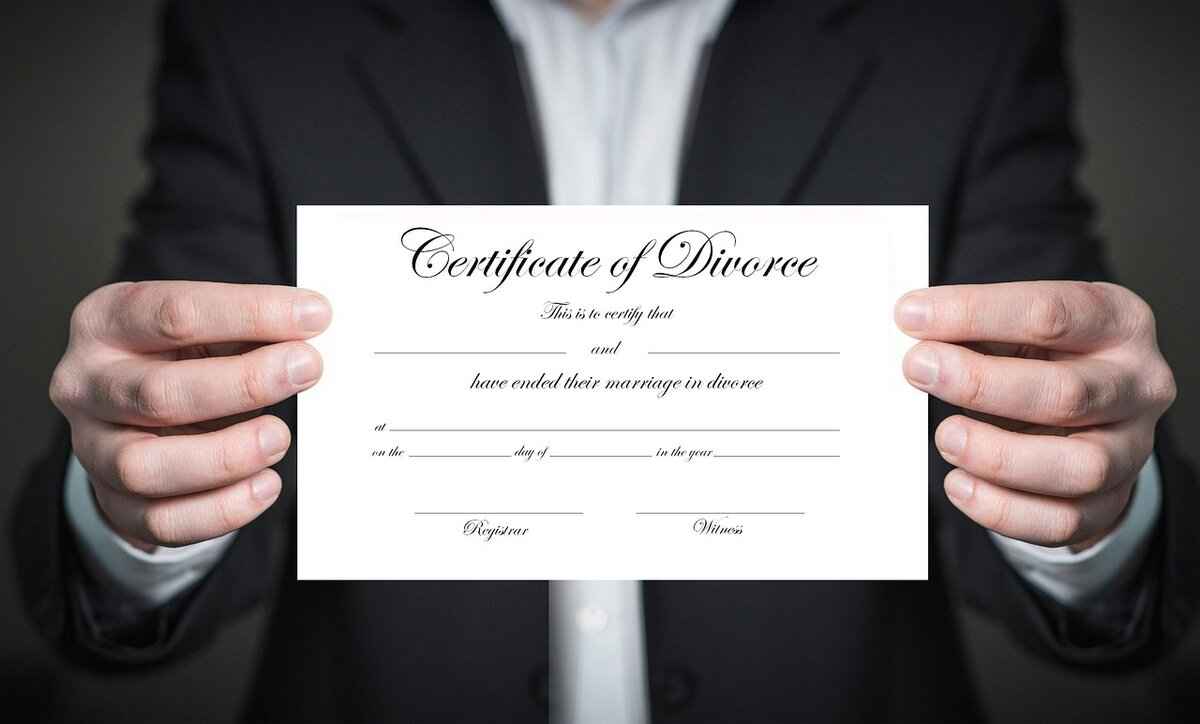This article delves into the timeline of divorce lawsuits in the United States, providing insights into the various factors that influence the duration of these legal proceedings. Understanding the typical timelines and strategies for expediting the process can empower individuals navigating this challenging experience.
Understanding Divorce Lawsuits
Divorce lawsuits are formal legal processes that dissolve a marriage. They encompass multiple stages, including filing, discovery, negotiation, and finalization, each of which can significantly affect the overall duration of the divorce.
Factors Influencing Divorce Duration
Several key factors can impact how long a divorce lawsuit takes:
- Complexity of the Case: Cases involving children, substantial assets, or disputes over alimony tend to take longer due to the need for extensive negotiations and legal proceedings.
- Jurisdictional Differences: Each state has its own laws and procedures regarding divorce, which can lead to variations in how long the process takes.
- Willingness to Negotiate: The degree of cooperation between both parties can significantly influence the timeline; amicable couples may reach agreements faster.
Complexity of the Case
When children are involved, disputes over custody can complicate divorce proceedings. Mediation or court intervention may be necessary, often prolonging the timeline. Similarly, disagreements over asset division can lead to lengthy negotiations, especially when significant finances or properties are at stake.
Typical Timeline for Divorce Lawsuits
While each divorce case is unique, there are common timelines that can help set realistic expectations:
- Initial Filing to Response: The process begins with filing a divorce petition, followed by a waiting period for the other party to respond, typically lasting several weeks.
- Discovery Phase: This phase involves gathering and exchanging information, which may take several months depending on the case’s complexity and both parties’ cooperation.
Strategies to Expedite Divorce Proceedings
Couples looking to shorten the duration of their divorce lawsuits can consider the following strategies:
- Negotiation and Mediation: Engaging in mediation can facilitate quicker agreements, helping couples avoid lengthy court battles.
- Uncontested Divorce Options: Opting for an uncontested divorce, where both parties agree on all terms, can significantly reduce the timeline, often leading to a quicker resolution.
Common Misconceptions About Divorce Timelines
There are several misconceptions that can lead to unrealistic expectations regarding divorce timelines:
- Assuming All Divorces Take the Same Time: Many people mistakenly believe that all divorces follow a standardized timeline; however, each case varies based on individual circumstances.
- Believing Mediation Always Saves Time: While mediation can expedite the process, it is not a guaranteed solution for every couple, particularly if disputes arise during negotiations.
In conclusion, understanding the factors that influence the duration of a divorce lawsuit helps individuals navigate the process more effectively. By setting realistic expectations and employing strategies to expedite proceedings, couples can work towards a resolution that meets their needs.

Understanding Divorce Lawsuits
Divorce lawsuits represent a critical legal process that formally dissolves a marriage. They encompass a series of stages that can significantly impact the duration of the overall proceedings. Understanding the intricacies involved in divorce lawsuits is essential for anyone navigating this challenging experience.
What is a Divorce Lawsuit?
A divorce lawsuit is initiated when one spouse files a petition in court, seeking to terminate the marriage. This legal action is not merely a formality; it involves a comprehensive examination of various aspects, including asset division, alimony, and child custody arrangements. The complexity of these issues can vary widely, influencing the timeline of the divorce process.
Stages of a Divorce Lawsuit
- Filing the Petition: The process begins with one spouse filing a divorce petition, which outlines the reasons for the divorce and the desired outcomes.
- Response: The other spouse must respond to the petition, typically within a specified timeframe, which can vary by jurisdiction.
- Discovery: This phase involves gathering and exchanging information relevant to the case, including financial documents and evidence supporting claims.
- Mediation or Negotiation: Many couples engage in mediation to resolve disputes amicably, potentially reducing the need for a lengthy court battle.
- Trial: If an agreement cannot be reached, the case may proceed to trial, where a judge will make the final decisions on contested issues.
Impact of Legal Representation
Having experienced legal representation can significantly affect the duration and outcome of a divorce lawsuit. Attorneys can help navigate complex legal requirements, advocate for their clients’ interests, and facilitate negotiations between parties. Their expertise can streamline the process, potentially leading to quicker resolutions.
Common Challenges in Divorce Lawsuits
- Child Custody Disputes: Custody issues are often among the most contentious aspects of divorce, leading to prolonged negotiations and court appearances.
- Asset Division: Disagreements over the division of marital assets, especially in high-net-worth cases, can extend the duration of the lawsuit.
- Alimony Claims: Disputes regarding spousal support can complicate proceedings, as courts must consider various factors before making determinations.
Jurisdictional Variations
The laws governing divorce vary by state, affecting the process and timeline. Some states have mandatory waiting periods, while others may require specific procedures that can prolong the timeframe. It is crucial for individuals to understand their local laws and how they may impact their divorce case.
Conclusion
In summary, divorce lawsuits are multifaceted legal processes that can take varying amounts of time to resolve, depending on numerous factors. By understanding the stages involved and the potential challenges, individuals can better prepare themselves for the journey ahead. Engaging a knowledgeable attorney can also provide invaluable support in navigating these complexities and expediting the resolution of the divorce.

Factors Influencing Divorce Duration
Divorce is a significant life event that can be both emotionally and legally challenging. Understanding the factors influencing the duration of a divorce lawsuit is crucial for anyone navigating this complex process. The duration of a divorce can vary widely based on several elements, including the complexity of the case, the jurisdiction in which the divorce is filed, and the willingness of both parties to negotiate amicably.
The complexity of the case plays a pivotal role in determining how long a divorce lawsuit may take. Cases that involve children, substantial assets, or contentious issues often require more time to resolve. For instance:
- Child Custody Issues: Disputes over child custody can lead to prolonged proceedings. Courts often mandate mediation, which can extend the timeline if parents cannot reach an agreement.
- Asset Division Disputes: When couples have complex financial situations, such as shared businesses or significant investments, reaching a fair settlement can be time-consuming.
- Alimony and Support: Disagreements over spousal support can further complicate matters, necessitating additional negotiations or court hearings.
The jurisdiction where the divorce is filed can significantly affect the timeline. Each state in the U.S. has its own laws and procedures governing divorce, which can lead to variations in how quickly a divorce can be finalized. For example:
- Some states impose mandatory waiting periods before a divorce can be finalized, while others may allow for quicker resolutions.
- The local court’s caseload can also impact how quickly a case is heard and resolved.
The willingness of both parties to negotiate amicably can greatly influence the duration of the divorce process. Couples who can communicate effectively and agree on key issues are likely to experience a smoother and faster divorce. In contrast, contentious relationships can lead to protracted litigation.
- Mediation: Engaging in mediation can facilitate quicker resolutions, as it encourages collaborative problem-solving.
- Uncontested Divorces: If both parties agree on all terms, the divorce can be finalized much sooner, often within a few months.
Emotional factors can also play a significant role in the duration of a divorce lawsuit. The emotional state of both parties can affect their decision-making and willingness to engage in negotiations. High levels of stress and conflict may lead to delays, as individuals may struggle to focus on the legal aspects of their divorce.
The choice of legal representation can impact the duration of the divorce process. Experienced attorneys can help streamline the proceedings by:
- Providing clear guidance on legal rights and obligations.
- Facilitating effective communication between parties.
- Ensuring that all necessary documentation is completed accurately and promptly.
In conclusion, understanding the various can empower individuals to approach the process with realistic expectations and informed strategies. By considering the complexity of the case, jurisdictional nuances, negotiation willingness, emotional dynamics, and the role of legal representation, individuals can navigate the divorce process more effectively.
Complexity of the Case
Divorce proceedings can be intricate and emotionally charged, particularly when they involve children, significant assets, or alimony disputes. The complexity of a case often extends the duration of a divorce lawsuit, necessitating additional negotiations and legal proceedings that can be both time-consuming and stressful for all parties involved.
When children are part of a divorce, custody arrangements become a pivotal concern. Disagreements over who will have primary custody or how visitation rights will be structured can lead to prolonged negotiations. Often, mediation is required to facilitate discussions and reach an amicable agreement. If mediation fails, the matter may escalate to court, where a judge will make the final determination. This process can add several months to the overall timeline of the divorce.
In cases where significant assets are at stake, the division of property can become contentious. Couples with complex financial portfolios, including real estate, investments, and retirement accounts, may find themselves entangled in disputes that require expert valuations and negotiations. The need for forensic accountants or financial experts to assess the value of assets can further complicate and lengthen the divorce process. Each party may also seek to protect their interests, leading to protracted legal battles.
Disagreements over alimony can also prolong divorce proceedings. The determination of spousal support involves assessing various factors, including the length of the marriage, the financial situation of both parties, and the standard of living during the marriage. If one party contests the amount or duration of alimony, it can lead to extended negotiations or court hearings, further delaying the finalization of the divorce.
In many cases, the need for additional legal proceedings can exacerbate the timeline of a divorce. Court interventions may be necessary to resolve disputes regarding custody, asset division, or alimony. Each court appearance requires preparation, documentation, and often, legal representation, which can add weeks or months to the process. Furthermore, court schedules can be unpredictable, with delays in obtaining hearing dates contributing to extended timelines.
The jurisdiction in which the divorce is filed also plays a crucial role in determining the duration of the proceedings. Different states have varying laws regarding divorce, custody, and asset division, which can influence how quickly cases are resolved. For example, some states require mandatory waiting periods, while others may have specific guidelines for custody evaluations that can prolong the process.
While the complexities of divorce can lead to extended timelines, there are strategies that parties can employ to help expedite the process. Engaging in mediation early on can facilitate open communication and lead to quicker resolutions. Additionally, being organized and proactive in gathering necessary documentation can help streamline the discovery phase.
Ultimately, understanding the factors that contribute to the complexity of a divorce case can help individuals navigate the process more effectively. By being aware of potential delays and actively seeking solutions, parties can work towards a more efficient resolution.
Child Custody Issues
Child custody issues are often among the most emotionally charged aspects of divorce proceedings. When parents separate, the well-being of their children becomes the primary concern, leading to disputes that can significantly complicate the divorce process. Understanding the implications of child custody arrangements is crucial for parents navigating this challenging terrain.
In many cases, disputes over child custody can extend the timeline of divorce proceedings. This is primarily due to the need for mediation or court intervention, which can introduce delays. Child custody can be categorized into two main types:
- Legal Custody: This refers to the right to make important decisions regarding the child’s upbringing, including education, healthcare, and religious training.
- Physical Custody: This pertains to where the child lives and the time spent with each parent.
When parents cannot agree on custody arrangements, they may be required to attend mediation sessions. Mediation is a process where a neutral third party helps parents negotiate a mutually acceptable agreement. While this can be an effective way to resolve disputes, it is not always successful. If mediation fails, the case may escalate to court, where a judge will make the final decision. This can introduce significant delays, as court schedules can be congested, and hearings may take weeks or even months to be scheduled.
Another factor that can complicate child custody disputes is the emotional state of the parents. High levels of conflict can lead to prolonged negotiations, as each party may be unwilling to compromise. Additionally, if one parent feels that their rights are being threatened, they may take a more aggressive stance, further complicating the issue. It is essential for parents to approach custody discussions with a focus on the best interests of the child, rather than personal grievances.
In many jurisdictions, courts prioritize the child’s welfare when making custody decisions. They consider factors such as:
- The child’s age and developmental needs
- The emotional ties between the child and each parent
- The parents’ ability to provide a stable environment
- Any history of domestic violence or substance abuse
Understanding these factors can help parents prepare for custody discussions and anticipate potential challenges. Seeking the assistance of a qualified attorney who specializes in family law can also provide valuable guidance. An attorney can help parents understand their rights, navigate the legal system, and develop a strategy that focuses on achieving a favorable outcome for their children.
Ultimately, while disputes over child custody can complicate divorce proceedings, there are ways to mitigate delays. Engaging in open communication, prioritizing the child’s needs, and seeking professional mediation can all contribute to a more efficient resolution. By being informed and prepared, parents can help ensure that the custody process is as smooth and expedient as possible.
Asset Division Disputes
When navigating the complexities of a divorce, often emerge as one of the most challenging aspects. The division of property and financial resources can lead to prolonged negotiations, particularly when both parties have differing views on what constitutes a fair settlement. Understanding the intricacies of asset division is crucial for couples facing this situation.
In the United States, asset division during a divorce is typically governed by state laws, which can vary significantly. Most states follow either community property or equitable distribution principles. Under community property laws, all assets acquired during the marriage are considered jointly owned and are split equally. In contrast, equitable distribution allows for a more subjective division based on various factors, such as the length of the marriage, each spouse’s financial situation, and contributions to the marriage.
- Complex Financial Situations: Couples with significant assets, investments, or business interests often face more complicated negotiations. Valuing these assets accurately can require professional appraisals, which can extend the timeline.
- Emotional Attachments: Disputes can also arise from emotional ties to certain properties or investments, complicating rational decision-making.
- Debt Considerations: It’s not just assets that need to be divided; debts must also be addressed. Determining who is responsible for shared debts can lead to further disagreements.
To facilitate a smoother asset division process, both parties should gather and organize all relevant financial documents. This includes bank statements, tax returns, retirement account statements, and property deeds. Having clear documentation helps to establish a transparent picture of the couple’s financial landscape, which can expedite negotiations.
Effective negotiation is key to resolving asset division disputes. Here are some strategies that can help:
- Open Communication: Encourage honest discussions about financial expectations and needs. This can help build trust and lead to more amicable solutions.
- Mediation: Utilizing a neutral third party can assist in navigating contentious discussions, making it easier to find common ground.
- Prioritizing Needs: Focus on essential needs rather than wants. This may involve compromising on certain assets to ensure that both parties feel their basic financial needs are met.
Engaging a qualified attorney can provide invaluable support during the asset division process. An experienced lawyer can offer insights into state laws, help navigate complex financial issues, and advocate for a fair settlement. Furthermore, legal professionals can assist in preparing for negotiations or court proceedings, ensuring that both parties are adequately represented.
The outcome of asset division disputes can vary widely. In some cases, couples may reach a mutual agreement, allowing for a quicker resolution. However, if negotiations fail, the matter may proceed to court, where a judge will make the final decisions. This can lead to a more protracted process, as court schedules can be congested and legal proceedings may take months to resolve.
In conclusion, asset division disputes are a common yet complex aspect of divorce that can prolong the process significantly. By understanding the factors at play, employing effective negotiation strategies, and seeking legal support, couples can work towards a fair and equitable resolution.
Jurisdictional Differences
play a critical role in determining the duration of divorce lawsuits across the United States. Each state has its own set of laws, regulations, and procedures that govern the divorce process, which can lead to significant variations in how long it takes to finalize a divorce. Understanding these differences is essential for anyone navigating the complexities of divorce.
One of the primary factors affecting the timeline is the waiting period mandated by state laws. Some states require couples to wait a specific amount of time after filing for divorce before the case can be finalized. For instance, states like California have a mandatory six-month waiting period, while others, like New York, may not have a waiting period but have specific procedural requirements that can prolong the process.
Additionally, the grounds for divorce can vary by state, affecting how quickly a divorce can proceed. States that recognize no-fault divorce allow couples to dissolve their marriage without proving wrongdoing, which can expedite the process. In contrast, states that require proof of fault may involve lengthy investigations and court hearings, delaying the finalization of the divorce.
Another aspect to consider is the court system itself. Some states have a more efficient court system with streamlined processes for handling divorce cases, while others may be burdened with backlogs and delays. For example, urban areas often experience longer wait times due to higher case volumes compared to rural jurisdictions.
Geographic location also impacts the divorce timeline. In states with larger populations, such as Texas or Florida, the demand for court resources can lead to longer wait times for hearings and final judgments. Conversely, smaller states may have fewer cases, allowing for quicker resolutions.
Child custody and support issues further complicate divorce proceedings and can significantly extend the timeline. Many states require mediation for custody disputes, which can add weeks or even months to the process. If parents cannot reach an agreement, they may have to go through a series of court hearings to resolve these critical issues, further delaying the finalization of the divorce.
Furthermore, the division of assets can be a contentious issue that varies by jurisdiction. Some states follow community property laws, where assets acquired during the marriage are divided equally, while others adhere to equitable distribution principles, which may lead to protracted negotiations over asset valuation and division. The complexity of these negotiations can directly affect the length of the divorce process.
In addition to these factors, the cooperation of both parties plays a crucial role in how swiftly a divorce can be finalized. States that encourage collaborative divorce practices may see shorter timelines, as couples work together to reach agreements. In contrast, adversarial approaches can lead to extended litigation and court involvement, significantly increasing the duration of the divorce.
Lastly, it is essential for individuals to be aware of local legal resources and support systems that can aid in navigating the divorce process. Many states offer resources such as legal aid, mediation services, and counseling, which can help couples manage their divorce more efficiently.
In summary, understanding the in divorce laws is vital for anyone considering divorce. By being informed about the specific regulations and procedures in their state, individuals can better prepare for the timeline and complexities of their divorce, ultimately leading to a more efficient resolution.

Typical Timeline for Divorce Lawsuits
Divorce is often a challenging and emotional process, and understanding the can help individuals navigate this difficult journey with greater clarity. While every case is unique, there are common stages and durations that can provide a framework for what to expect.
The divorce process generally begins with the initial filing. This stage involves one spouse filing a divorce petition, which formally initiates the legal proceedings. After the petition is filed, the other party typically has a set period, often ranging from 20 to 30 days, to respond. This response time can vary based on the jurisdiction and the complexity of the case.
Following the initial response, the discovery phase begins. This phase is crucial as both parties gather essential information and documents relevant to the case. Depending on the complexity of the divorce, this process can take anywhere from three to six months. During discovery, parties may exchange financial statements, tax returns, and other pertinent information. Cooperation during this phase can significantly influence the overall timeline.
Another significant factor affecting the duration of a divorce lawsuit is whether the case involves child custody issues. Disputes regarding custody can prolong the process, often requiring mediation or court hearings. If both parties are unable to reach an agreement, the court may need to intervene, which can add several months to the timeline.
Additionally, the division of assets and debts can complicate divorce proceedings. Cases involving significant assets, such as real estate or business interests, may require extensive negotiations and appraisals, extending the timeline by several months or even longer. Couples who can agree on asset division can often expedite the process.
Once the discovery phase concludes, the case may move into the negotiation phase. This stage involves both parties and their attorneys discussing the terms of the divorce, including child custody, support, and property division. If both parties can reach an agreement, the divorce can proceed more swiftly. However, if disputes arise, the case may require court intervention, further extending the timeline.
For couples seeking a faster resolution, exploring uncontested divorce options can be beneficial. In an uncontested divorce, both parties agree on all terms, allowing for a streamlined process that can often be finalized in a matter of weeks. This option is particularly advantageous for couples without significant disputes or complex financial issues.
It’s also important to note that different states have varying laws and procedures that can influence the timeline of a divorce lawsuit. Understanding the specific requirements in your jurisdiction can help set realistic expectations and avoid unnecessary delays.
In summary, while the timeline for divorce lawsuits can vary widely based on individual circumstances, understanding the typical stages can help individuals prepare for the journey ahead. From the initial filing to the final decree, being informed about the process can alleviate some of the stress associated with divorce.
Initial Filing to Response
The process of navigating a divorce can be emotionally taxing and legally complex. One of the first and most crucial steps in this journey is the initial filing of the divorce petition. This stage sets the tone for the entire divorce process and involves several key components that individuals must understand.
After the divorce petition is filed, the respondent—the spouse who receives the petition—typically has a designated period, often ranging from 20 to 30 days, to respond. This waiting period can feel prolonged, especially for those eager to move forward. During this time, the respondent may consult with an attorney to discuss their options and formulate a response. This legal advice can be crucial in determining how the divorce proceedings will unfold.
It’s important to note that the timeline for the response can vary significantly based on multiple factors. For instance, if the respondent is located in a different state or country, this can complicate communication and extend the waiting period. Additionally, if the respondent contests the divorce or disputes certain terms, this can lead to a more drawn-out process.
Once the respondent files their answer, the divorce case moves into the discovery phase. This phase is essential for both parties as they gather evidence, financial documents, and other pertinent information needed to negotiate the terms of the divorce. The discovery process can last several months, particularly in cases involving substantial assets or child custody issues.
Furthermore, the initial phase of a divorce can also involve temporary orders, which may be requested by either party. These orders can address issues such as child support, spousal support, and living arrangements during the divorce proceedings. Obtaining these orders can add additional time to the initial phase, as the court must review and approve them.
In some cases, couples may opt for mediation during this initial stage, which can facilitate a more amicable resolution. Mediation can help expedite the response process, as it encourages both parties to communicate and negotiate directly, potentially avoiding protracted legal battles.
Overall, the initial phase of filing a divorce petition is a critical step that lays the groundwork for the remainder of the divorce process. Understanding the waiting period for responses, the importance of legal counsel, and the potential for mediation can significantly impact how quickly and efficiently a divorce can be finalized.
By being informed and prepared, individuals can navigate this challenging time with greater clarity and confidence, ultimately leading to a more favorable outcome.
Discovery Phase
The is a crucial part of any divorce lawsuit, serving as the stage where both parties gather and exchange pertinent information regarding their marriage. This phase can significantly influence the overall timeline of the divorce process, often lasting several months. The duration of this phase can vary widely based on several factors, including the complexity of the case and the level of cooperation between the parties involved.
During the discovery phase, both spouses are required to disclose relevant information and documents. This may include financial records, property valuations, and other evidence pertinent to the divorce proceedings. The primary goal is to ensure that both parties have a clear understanding of each other’s positions, which is essential for equitable negotiations.
- Complex Cases: If the divorce involves complex issues such as child custody, significant assets, or alimony disputes, the discovery process can become more intricate. Additional documentation may be required, and expert evaluations might be necessary to assess the value of assets or the needs of children.
- Cooperation Levels: The willingness of both parties to cooperate can also impact the timeline. When both spouses are amicable and willing to share information openly, the discovery phase can proceed smoothly. Conversely, if one party is uncooperative or attempts to withhold information, it can lead to delays and complications.
Moreover, the jurisdiction in which the divorce is filed can influence the discovery phase’s length. Different states have varying rules regarding the discovery process, including timelines for information exchange and the types of disclosures required. Understanding these jurisdictional nuances can help individuals better navigate the divorce process.
In many cases, the discovery phase can take anywhere from a few weeks to several months. On average, it may last around three to six months, but this is highly variable. For instance, if both parties have a substantial amount of financial documentation or if there are disputes about the valuation of assets, the process may extend longer.
To expedite the discovery phase, couples can consider several strategies:
- Early Preparation: Gathering necessary documents and information early in the process can save time and reduce delays.
- Utilizing Mediation: Engaging a mediator can facilitate open communication and encourage both parties to share information more willingly.
- Legal Guidance: Consulting with an experienced attorney can help ensure that all necessary disclosures are made efficiently, streamlining the discovery process.
Ultimately, the discovery phase is a vital step in the divorce process that sets the stage for negotiations and potential settlement. Understanding its implications and being prepared can significantly affect the overall timeline of the divorce lawsuit.

Strategies to Expedite Divorce Proceedings
Divorce proceedings can often feel overwhelming and prolonged, but there are several effective strategies couples can utilize to potentially shorten the duration of their divorce lawsuits. By focusing on cooperation, communication, and efficient legal practices, couples can navigate the complexities of divorce more smoothly.
Emphasizing Collaboration
One of the most significant ways to expedite divorce proceedings is through collaboration. Couples who can communicate openly about their needs and concerns are more likely to reach agreements quickly. This cooperative approach can significantly reduce the need for court interventions, which often prolong the process.
- Establish Clear Goals: Couples should discuss their objectives and priorities early in the process. By understanding what is most important to each party, they can focus their negotiations on key issues.
- Maintain Respectful Communication: Keeping discussions respectful can prevent conflicts from escalating. When emotions run high, it can lead to delays and complications.
Utilizing Mediation
Mediation is another effective strategy that can help expedite divorce proceedings. In this process, a neutral third party facilitates discussions between the couple, helping them to reach mutually beneficial agreements.
- Benefits of Mediation: Mediation can save time and money compared to traditional litigation, as it often leads to quicker resolutions. Furthermore, it allows couples to maintain control over the outcome rather than leaving decisions in the hands of a judge.
- Choosing the Right Mediator: Selecting a mediator with experience in family law can make a significant difference. An experienced mediator can guide discussions efficiently and help resolve disputes effectively.
Exploring Uncontested Divorce Options
Opting for an uncontested divorce can greatly shorten the timeline of divorce proceedings. In an uncontested divorce, both parties agree on all major issues, including asset division, child custody, and support arrangements.
- Advantages of Uncontested Divorce: This option typically requires less time in court and fewer legal fees, making it a more efficient choice for couples who can cooperate.
- Preparing Necessary Documentation: Couples should prepare all required documents in advance to facilitate a smooth process. This includes financial disclosures and any agreements reached during negotiations.
Leveraging Technology
In today’s digital age, technology can play a crucial role in expediting divorce proceedings. Couples can utilize various online platforms to streamline communication and document sharing.
- Online Legal Services: Many legal services now offer online platforms for filing and managing divorce paperwork, which can save time and reduce the burden of in-person visits.
- Virtual Meetings: Holding virtual meetings with attorneys or mediators can also eliminate travel time and allow for more flexible scheduling.
Seeking Professional Guidance
Finally, consulting with an experienced family law attorney can provide invaluable insights and strategies tailored to the couple’s specific situation. An attorney can help navigate the legal system efficiently and offer advice on the best course of action to expedite the process.
- Understanding Legal Rights: A knowledgeable attorney can clarify legal rights and obligations, helping couples make informed decisions that can speed up the process.
- Negotiation Skills: Attorneys can employ their negotiation skills to help reach agreements more quickly, reducing the need for prolonged litigation.
By implementing these strategies, couples can significantly reduce the duration of their divorce proceedings, enabling them to move forward with their lives more swiftly and amicably.
Negotiation and Mediation
Divorce can be a challenging and emotionally taxing process for couples. However, engaging in negotiation or mediation can significantly alleviate some of the burdens associated with divorce proceedings. By opting for these methods, couples can reach agreements more quickly, thereby avoiding the lengthy and often contentious court process.
Negotiation and mediation are alternative dispute resolution methods that focus on collaboration rather than confrontation. In negotiation, both parties communicate directly to settle their differences, while mediation involves a neutral third party facilitating discussions to help the couple reach a mutually acceptable agreement.
One of the most compelling advantages of these approaches is the potential to reduce the overall duration of the divorce process. Traditional divorce lawsuits can be prolonged due to various factors, including court schedules, legal procedures, and the complexity of the case. By engaging in negotiation or mediation, couples can often bypass many of these hurdles.
- Faster Resolution: Mediation sessions can be scheduled at the convenience of both parties, allowing for quicker discussions and decisions. In contrast, court hearings may take weeks or even months to arrange.
- Cost-Effective: Engaging in negotiation or mediation typically incurs lower legal fees compared to a full court trial, which can be financially draining.
- Privacy: Mediation is a private process, meaning that personal matters are less likely to become public record, which can be especially important for couples concerned about privacy.
Moreover, negotiation and mediation foster better communication between couples. This improved dialogue can lead to more amicable settlements, which are crucial when children are involved. When parents can agree on issues such as custody and visitation without the need for court intervention, it not only benefits them but also creates a more stable environment for their children.
However, it is essential to recognize that negotiation and mediation may not be suitable for every couple. In instances where there is a significant power imbalance, such as cases involving domestic violence, mediation may not be effective. In such situations, it is crucial to seek legal advice to ensure safety and fair representation.
In conclusion, while the traditional divorce process can be lengthy and complex, engaging in negotiation or mediation presents an effective alternative for couples seeking to minimize the time and stress associated with divorce. By prioritizing communication and collaboration, couples can navigate their separation more efficiently, ultimately leading to a more positive outcome for all parties involved.
Uncontested Divorce Options
When navigating the complexities of divorce, many couples face the critical decision of how to proceed with their separation. Among the various options available, uncontested divorce stands out as a streamlined and efficient choice. In this article, we will delve into the benefits of opting for an uncontested divorce, the process involved, and how it can significantly shorten the timeline for finalizing the divorce.
An uncontested divorce occurs when both parties agree on all terms of the divorce, including issues such as child custody, asset division, and alimony. This mutual agreement eliminates the need for lengthy negotiations or court battles, allowing couples to reach a resolution more quickly. In many cases, an uncontested divorce can be finalized in as little as a few weeks to a few months, depending on the jurisdiction and specific circumstances.
One of the primary advantages of an uncontested divorce is the reduction in legal fees. Since both parties are in agreement, they can often avoid the costs associated with prolonged litigation. This not only saves money but also reduces the emotional strain that often accompanies divorce proceedings. Less time spent in court means more time for both parties to focus on adjusting to their new lives.
Moreover, an uncontested divorce provides couples with greater control over the terms of their separation. Instead of leaving crucial decisions in the hands of a judge, both parties can collaboratively determine the best arrangements for their children and finances. This collaborative approach fosters a sense of cooperation, which can be particularly beneficial when children are involved, as it sets a positive tone for future co-parenting.
To initiate an uncontested divorce, couples typically start by filing a divorce petition that outlines their agreed-upon terms. This document is then submitted to the court, where it will be reviewed. If everything is in order, the court will schedule a hearing, which is often brief and straightforward. During this hearing, the judge will confirm that both parties understand and agree to the terms before granting the divorce.
It is essential to note that while an uncontested divorce can expedite the process, it requires thorough preparation and open communication between both parties. Couples should ensure that they are on the same page regarding all aspects of the divorce to avoid complications later on. Engaging the services of a mediator or attorney can also help facilitate discussions and ensure that all legal requirements are met.
In conclusion, opting for an uncontested divorce can significantly shorten the timeline for finalizing a divorce, offering numerous benefits such as reduced costs, greater control over decisions, and a less adversarial process. By understanding the process and preparing adequately, couples can navigate their divorce with greater ease and efficiency.

Common Misconceptions About Divorce Timelines
When navigating the complex world of divorce, it is essential to understand the realities surrounding the timeline of divorce lawsuits. There are several misconceptions regarding how long these legal processes take, which can lead to unrealistic expectations and added stress for those involved. This article aims to clarify some of these misconceptions and provide a more accurate picture of what to expect during a divorce.
- Assuming All Divorces Take the Same Time
- The complexity of the case
- The jurisdiction in which the divorce is filed
- The willingness of both parties to cooperate and negotiate
- Believing Mediation Always Saves Time
- Thinking That a Contested Divorce is Always Longer
- Overlooking the Impact of Local Laws
- Underestimating the Role of Emotions
One of the most prevalent misconceptions is the belief that all divorces follow a standard timeline. In reality, the duration of a divorce lawsuit can vary significantly based on numerous factors, including:
For instance, a couple with no children and minimal assets may finalize their divorce in a matter of months, while another couple with children and significant assets may take years to resolve their differences.
Mediation is often touted as a way to expedite divorce proceedings. However, it is important to recognize that mediation does not guarantee a quicker resolution for every couple. If the parties involved are unable to reach an agreement during mediation, the process can become protracted, leading to additional court appearances and delays.
Many people assume that contested divorces inherently take longer than uncontested ones. While contested divorces do have the potential to extend the timeline due to disputes, there are instances where an uncontested divorce can be delayed by issues such as incomplete documentation or failure to meet filing deadlines. Therefore, it is crucial to focus on the specifics of the case rather than relying on generalizations.
Another common misconception is that divorce laws are uniform across the United States. In reality, each state has its own laws and procedures, which can significantly impact the timeline of a divorce. For example, some states have mandatory waiting periods before a divorce can be finalized, while others may require specific documentation that can take time to gather.
Divorce is not just a legal process; it is also an emotional journey. The emotional state of both parties can greatly influence the timeline. High levels of conflict, resentment, or unwillingness to compromise can lead to prolonged negotiations and increased legal fees. On the other hand, couples who approach the process with a collaborative mindset may find themselves able to resolve issues more quickly.
In conclusion, understanding these misconceptions can help individuals better prepare for the divorce process. By setting realistic expectations and recognizing the factors that can influence the duration of a divorce lawsuit, individuals can approach their situation with greater clarity and confidence.
Assuming All Divorces Take the Same Time
Understanding the intricacies of divorce timelines is crucial for anyone navigating the emotional and legal complexities of ending a marriage. Many individuals hold the misconception that all divorces unfold within a similar timeframe. However, this belief overlooks the unique circumstances that can significantly alter the duration of divorce proceedings.
Divorce cases are influenced by a multitude of factors, making each situation distinct. The complexity of the case, the jurisdiction in which the divorce is filed, and the willingness of both parties to cooperate can dramatically impact how long the process takes. For instance, divorces involving children typically require additional considerations such as custody arrangements and child support, which can extend the timeline considerably.
Moreover, the division of assets can introduce further complications. Couples with significant financial holdings or disagreements over property division often find themselves entangled in lengthy negotiations, which can prolong the divorce process. In contrast, a couple that has minimal assets and no children may find their divorce resolved relatively quickly.
Jurisdictional differences also play a crucial role in determining the length of a divorce. Each state in the U.S. has its own divorce laws and procedures, leading to variations in timelines. For example, some states impose mandatory waiting periods before a divorce can be finalized, while others may expedite the process under certain conditions.
Another common misconception is that mediation or negotiation will always lead to a quicker resolution. While these methods can indeed speed up the process for many couples, they are not foolproof. If disputes arise or if one party is unwilling to compromise, mediation can become protracted, leading to delays that may extend the overall timeline.
It is essential for individuals to approach their divorce with realistic expectations. Understanding that each case is unique and influenced by various factors can help alleviate some of the stress associated with the process. Couples should consider engaging legal counsel who can provide tailored advice based on their specific circumstances, ensuring they are well-informed about what to expect.
In summary, the notion that all divorces take the same amount of time is a misconception that can lead to frustration and unrealistic expectations. By recognizing the various elements that contribute to the duration of a divorce, individuals can better prepare themselves for the journey ahead. Engaging in open communication, exploring mediation options, and seeking professional guidance are all strategies that can help streamline the process and lead to a more favorable outcome.
Believing Mediation Always Saves Time
Mediation is often hailed as a valuable tool in the divorce process, promising a quicker resolution than traditional litigation. However, the belief that mediation will always save time for couples undergoing a divorce is a misconception that can lead to frustration and disappointment.
While mediation can indeed expedite certain aspects of the divorce process, it is important to understand that it is not a guaranteed solution for every couple. The effectiveness of mediation largely depends on several factors:
- Willingness to Negotiate: Both parties must be open to discussing and compromising on various issues. If one party is unwilling to cooperate, mediation can stall or even break down altogether.
- Complexity of Issues: Mediation can become protracted if the issues at hand are complex, such as disputes over child custody, asset division, or spousal support. These complexities often require more time to resolve.
- Emotional Factors: Divorce is an emotionally charged process. If emotions run high, it can hinder effective communication and prolong mediation sessions.
- Legal Representation: Having attorneys present during mediation can add structure but may also extend the process, as legal counsel may need to negotiate terms or clarify legal implications.
In some cases, couples may enter mediation with the best intentions, only to find that disagreements escalate during discussions. This breakdown in negotiations can lead to a return to court, effectively nullifying any time saved during mediation. Furthermore, if mediation fails, the couple may face additional delays as they transition back into the litigation process, which can be lengthy and cumbersome.
It’s also important to note that not all mediators are equally skilled or experienced. A mediator’s ability to facilitate productive discussions can significantly impact the duration of the mediation process. Couples should thoroughly research and choose a mediator who has a proven track record of effectively resolving disputes.
Another common misconception is that mediation is a one-size-fits-all solution. Each couple’s circumstances are unique, and what works for one pair may not work for another. For instance, couples with a history of conflict may find that mediation is less effective, as their inability to communicate constructively can hinder progress.
Moreover, mediation does not eliminate the need for legal proceedings entirely. Even after reaching an agreement through mediation, couples often still need to file legal documents with the court to formalize their divorce, which can add additional time to the overall process.
In conclusion, while mediation can be a beneficial tool for many couples seeking to expedite their divorce process, it is crucial to approach it with realistic expectations. Understanding that mediation may not always save time, especially in complex or contentious cases, is essential for couples navigating this challenging period. Couples should weigh the potential benefits and drawbacks of mediation carefully, considering their unique circumstances before proceeding.

Conclusion
Understanding the factors that influence the duration of a divorce lawsuit can significantly aid individuals in navigating the often complex and emotionally charged process. By recognizing these factors, parties can establish realistic expectations and make informed decisions throughout their divorce journey.
Divorce lawsuits can vary widely in duration, influenced by several key elements. These include:
- Complexity of the Case: The more complicated the issues at hand—such as child custody arrangements, division of substantial assets, or spousal support—the longer the process may take. Each of these factors can introduce additional negotiations and legal steps that extend the timeline.
- Jurisdictional Variations: Different states have unique laws and regulations governing divorce, which can affect how long the process takes. For instance, some states impose mandatory waiting periods before a divorce can be finalized, while others may have more streamlined procedures.
- Willingness to Negotiate: The attitude of both parties towards negotiation plays a crucial role. Couples who are open to compromise and collaboration are likely to resolve their issues faster than those who engage in contentious disputes.
Another significant factor is the discovery phase, where both parties exchange information relevant to the case. This phase can take several months, particularly if there are disagreements over what should be disclosed. Efficient cooperation during this phase can help expedite the process.
In addition, child custody disputes often complicate divorce proceedings. If parents cannot agree on custody arrangements, the court may require mediation or hearings, which can significantly extend the timeline. Furthermore, disputes over the division of assets can also lead to prolonged negotiations, especially when significant wealth is involved.
To help shorten the duration of divorce lawsuits, couples can consider the following strategies:
- Engaging in Mediation: Mediation allows couples to work with a neutral third party to reach agreements without going through the court system. This can save time and reduce the emotional toll of litigation.
- Uncontested Divorce: If both parties can agree on all terms of the divorce, opting for an uncontested divorce can lead to a quicker resolution. This approach minimizes the need for court appearances and lengthy negotiations.
It’s important to address some common misconceptions surrounding divorce timelines. Many people mistakenly believe that all divorces follow a standard timeline. In reality, the duration can vary greatly depending on the specific circumstances of each case. Additionally, while mediation is often viewed as a time-saving option, it may not always be effective, particularly if the parties involved cannot reach an agreement.
In conclusion, understanding the factors that influence the duration of a divorce lawsuit is essential for anyone facing this challenging life event. By being aware of the complexities involved and utilizing effective strategies, individuals can navigate the process more effectively and set realistic expectations for their situation.
Frequently Asked Questions
- How long does a divorce lawsuit typically take?
The duration of a divorce lawsuit can vary widely, but on average, it takes anywhere from a few months to over a year. Factors such as the complexity of the case and the willingness of both parties to negotiate can significantly influence this timeline.
- What factors can delay the divorce process?
Several factors can lead to delays, including disputes over child custody, asset division issues, and the specific laws of the jurisdiction. If both parties are uncooperative or if mediation is required, the process can take even longer.
- Can mediation really speed up the divorce process?
Yes, mediation can often expedite the divorce process by helping couples reach agreements without going through lengthy court proceedings. However, it’s not a guaranteed solution, especially if disagreements arise during negotiations.
- Is an uncontested divorce faster than a contested one?
Absolutely! An uncontested divorce, where both parties agree on all terms, can significantly shorten the timeline, often allowing for a quicker resolution compared to a contested divorce, which can involve complex legal battles.
- Are there common misconceptions about divorce timelines?
Yes, many people mistakenly believe that all divorces take the same amount of time or that mediation will always save time. In reality, each case is unique, and various factors can affect the duration.














